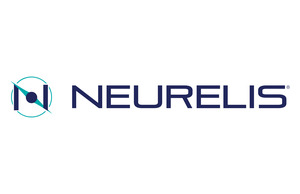Neurelis Announces Positive Results from Phase 1 Pharmacokinetic Study of NRL-01 (intranasal diazepam)
Phase 1 clinical trial demonstrated 96% bioavailability of intranasal diazepam relative to intravenous diazepam in healthy volunteers
SAN DIEGO, June 14, 2011 /PRNewswire/ -- Neurelis, Inc. today announced the results of a randomized crossover study in healthy volunteers assessing diazepam pharmacokinetics and bioavailability after administration of their proprietary intranasal diazepam formulations and intravenous injection. The study was designed and conducted in collaboration with investigators at the University of Minnesota. Comparative analysis of the lead intranasal formulation, NRL-1, revealed promising pharmacokinetic results. In its evaluation of a 10mg diazepam dose in the NRL-1 intranasal solution formulation, the study showed the following:
- NRL-1 is well-tolerated, with only mild adverse events reported
- Similar bioavailability to intravenous administration of diazepam (100% vs. 96%)
- Tmax of 1.5 hours.
- Cmax of approximately 272 ng/ml.
- These values are comparable to those reported in the literature for Diastat® (rectal diazepam gel) at equivalent doses. Diastat is the only approved therapy for the at home treatment of acute repetitive seizures.
"The results from this pilot study are very encouraging," commented Jim Cloyd, PharmD, University of Minnesota professor and principal investigator of the study, "The only approved drug to treat breakthrough seizures outside the hospital is diazepam rectal gel, a therapy that many older children and adults decline to use. The ability to quickly and efficiently deliver, via intranasal administration, clinically relevant diazepam levels offers a more acceptable method of rescue therapy. The bioavailability and relatively low variability in exposure of the intranasal diazepam solution exceeded our expectations. We look forward to further development of this important therapy."
Dr. Wheless, Director of the LeBonheur Comprehensive Epilepsy Program at the University of Tennessee added, "Currently, the many patients with epilepsy do not have a viable option to help them deal with seizure emergencies at home, work or in social settings. They end up with costly emergency room visits and hospital admissions. The prospect of delivering diazepam intranasally to minimize seizure emergencies outside of the hospital setting is very attractive for physicians, patients and caregivers."
"We are pleased to have reached this important milestone and excited about results previously unseen with intranasal delivery of benzodiazepines," stated David F. Hale, Chairman of Neurelis. "Neurelis plans to continue to work with leading clinicians and researchers to advance this important therapy for patients who are living with the challenges of epilepsy."
In the coming months, Neurelis plans to discuss the results of this study with the US Food and Drug Administration (FDA)to gain agreement on the next steps in the clinical progress of this product. Data from the study is being submitted for review at the 2011 American Epilepsy Society Annual Meeting in December.
About NRL-01
NRL-01 (intranasal diazepam) is a proprietary formulation of diazepam delivered via a commercially available nasal sprayer. It is being developed for the management of patients who require intermittent use of diazepam to control bouts of acute repetitive seizure activity. There are over 2.7 million people with epilepsy in the United States with approximately 200,000 new patients diagnosed each year. It is estimated that between 30% to 40% of these patients are uncontrolled on oral therapy and are at-risk for acute repetitive seizures. Studies have shown that prolonged or repetitive seizures can cause neurological damage and dramatically increase the risk of changes in neuropsychological function or even death.
Presently, the only product approved for the treatment of acute repetitive seizures outside of the acute care setting, is a rectally administered formulation of diazepam called Diastat®. Because of its rectal mode of administration, Diastat® is primarily used in younger pediatric patients. The majority of patients with acute repetitive seizures, however, are seen in emergency rooms with many having an associated admission to the hospital, contributing to the estimated $15 billion annual economic burden. Intranasal diazepam would provide a convenient alternative to either rectal administration of Diastat® or the need to visit the emergency room for intravenous administration of drugs.
About Neurelis
Neurelis, Inc. is a San Diego-based specialty pharmaceutical company organized to license, develop, and commercialize product candidates for epilepsy and the broader central nervous system ("CNS") market. Neurelis leverages expertise in the development and commercialization of CNS compounds and strong relationships with leading researchers and clinicians in these markets to advance unique product candidates to address significant unmet medical needs.
Contact: |
David F. Hale |
|
858-756-2480 |
||
Email: [email protected] |
||
SOURCE Neurelis, Inc.
WANT YOUR COMPANY'S NEWS FEATURED ON PRNEWSWIRE.COM?
Newsrooms &
Influencers
Digital Media
Outlets
Journalists
Opted In




Share this article